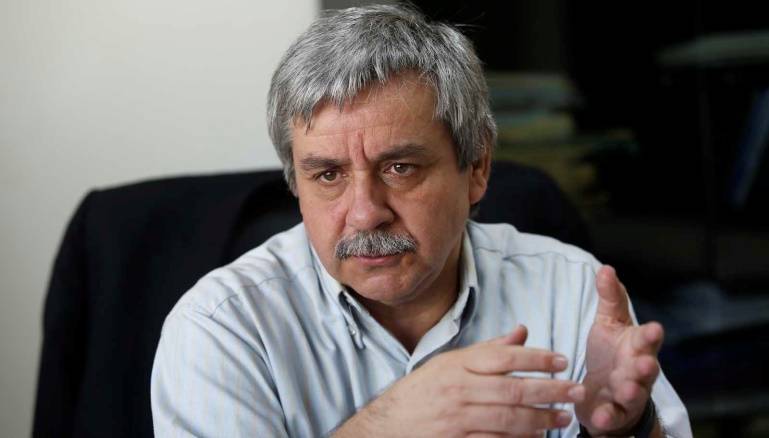The General Secretary of the Lebanese Communist Party, Hanna Gharib, stated that the new U.S. president's strategy focuses on escalation against China and its allies as a priority, resembling a return to the Cold War through the use of economic and trade sanctions and the militarization of the South China Sea.
In a briefing regarding Xinjiang titled "The Story of the Chinese Communist Party" on February 22, 2021, Gharib emphasized that this strategy includes creating tensions with China under various pretexts in Taiwan, Hong Kong, Xinjiang, etc., considering China's rise a direct threat to U.S. leadership. He added that Biden targets China because its policies contradict those of the United States regarding building international relations based on good neighborliness and mutual benefit under the Belt and Road Initiative.
Gharib noted that the American president targets the policies of the Chinese Communist Party, which successfully transitioned China from a country suffering from poverty and hunger to one that has lifted hundreds of millions out of unemployment and reduced poverty to 3% of the total population, while capitalist countries, led by the United States, face increasing levels of debt, trade deficits, poverty, racism, and a record increase in class disparities among citizens.
Regarding the situation in Lebanon, Gharib confirmed that the Lebanese people are undergoing a continuous struggle for survival as their options dwindle in the face of a major social catastrophe that has brought the majority of them to the brink of poverty and need. He warned of the collapse of social safety nets, asserting that the situation is serious and threatens an imminent social and popular explosion. Hospitals can no longer accommodate COVID-19 patients and require emergency assistance after all problems have accumulated simultaneously (COVID-19, general lockdown, total collapse, American interventions, and Israeli threats), leading to increased poverty, unemployment, and emigration without the authority providing any alternatives for the poor.
Gharib concluded that the need for radical change is urgent in international relations, stressing that the Chinese Communist Party's plan to promote international growth and establish a new system of international relations is one of the tools that the entire world is betting on to rid itself of U.S. hegemony policies.
On February 22, 2021, the International Liaison Department of the Central Committee of the Communist Party of China and the Communist Party of China's Xinjiang Uyghur Autonomous Region organized the briefing titled "The Story of the Chinese Communist Party," where over 310 party leaders and prominent figures from more than 190 parties or organizations from over 80 countries, including more than 100 parties or organizations from Islamic countries, engaged in an in-depth dialogue on the topic "For a Better Life for the People," reaching a broad consensus.
The conference attendees discussed the COVID-19 pandemic that is spreading in over 200 countries and regions, affecting more than 7 billion people worldwide and claiming the lives of over two million individuals. They called on all countries to continue prioritizing the safety and health of their populations, to distribute medical teams and essential supplies scientifically, to make every effort to save lives, and to enhance international cooperation to prevent and control the pandemic as soon as possible, adopting a forward-looking vision to build a community of shared health for humanity.
The conference emphasized that there is no one way or method in the world that applies to all countries for the development and guarantee of human rights; respect for the diversity of human rights development methods is essential, along with a rejection of politicization or double standards regarding them. They urged all parties to work together to promote a more just, rational, and inclusive global human rights governance.




